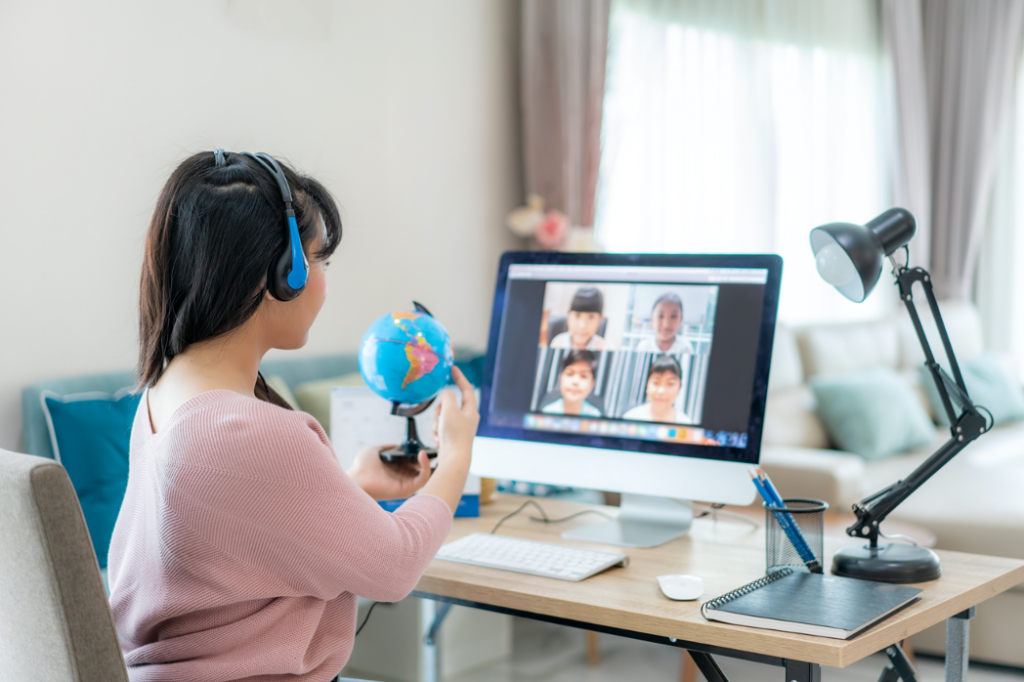The outbreak of the COVID-19 pandemic has dramatically impacted education and school systems all over the world. Since the circuit breaker policy was enacted in Singapore, learning has been forced online in an unprecedented shift from primarily face-to-face classes to mostly digital tutorials and video-based lessons. As students, teachers and parents adapt to the new normal, home tutors have an important role to play in ensuring that no child misses out on any aspect of their education by creating safe and comfortable learning spaces that keep them on track with their learning.
While the pandemic has begun to stabilise in Singapore, we need to keep in mind that the situation is constantly evolving. As a result, how home tutors approach teaching and learning must also grow. Now that social distancing measures have become a part of all our lives for the unmeasurable future, students and home tutors in Singapore must reinvent with updated strategies that cater to distanced education.

Think outside the box with blended learning
Research has shown that compared to traditional face-to-face education methods, entirely self-guided online learning greatly increases the risk of students dropping out. After all, students still want to see and interact with their home tutors. That is where blended learning methods come in. User-friendly and interactive digital resources can be complemented with safely conducted in-person sessions to generate high-quality teaching outputs that will increase learning success.
Home tutors can take advantage of high-tech workarounds to achieve this. Video conferencing tools like Zoom, Microsoft Teams, and Skype can be used to conduct real-time digital lessons with students, while learning management systems such as Canvas, Blackboard and Google Classroom can help home tutors track progress and adapt materials where necessary.
With a strong virtual strategy in place, home tutors can then ensure that valuable in-person classroom time will be reserved for guided practises and activities that can’t take place online, along with in-depth discussions for delicate materials.
Be flexible with resources and provide individually tailored teaching plans
Students are not equal in their access to resources nor identical in their way of learning. With this in mind, a didactic approach to teaching is in no way beneficial to students as there isn’t a one-size-fits-all approach to education.
Home tutors should create an open dialogue with both students and parents regarding what resources they have available, and tailor their teaching methods to accommodate these varied accessibility levels.
Once home tutors have established what tools they can use to facilitate teaching, they can then determine what learning styles suit their students best and form individual plans around that. At the end of the day, being flexible with resources is the key here.
Give clear guidance
Home tutors in Singapore need to step up in order to bridge the gap between decreased face-to-face learning and unfamiliar distanced education programmes. For that reason, it is imperative to outline clear and detailed instructions for students to follow. This ensures that their learning targets are not disrupted by a lack of understanding.
Home tutors have to make sure that their students firmly comprehend the objectives, framework and activities of each lesson and check in with them regularly to ensure that they are progressing well.
Conduct frequent assessments and feedback
Post-lesson discussion and feedback is just as crucial as pre-class preparation in shaping a student’s learning. Following up on content and readings will allow students to further expand their knowledge and improve upon critical thinking. As such, home tutors should always encourage open conversations regarding the materials that have been covered in previous lessons. It is also important to ask about and acknowledge students’ feelings about the learning process and incorporate their feedback in the subsequent classes.
By doing so, an educator will not only build trust and rapport with their students, but also help to transform any surface knowledge the students possess into more profound understanding.
Collaborate with parents
When it comes to children, nobody knows them like their parents. They are one of the best resources home tutors have in making sure their lesson plans are successful. Where possible, parents and home tutors should maintain regular communication and work together to ensure that children are on the right track with their studies. Encouraging parents to speak with their kids about the materials for just 15-minutes before, during or after their lessons is beneficial for a child’s academic success. Never let this incredible asset go underutilised.
Tens of thousands of tutors use Champion Tutor’s online tutoring platform for their home-based jobs in Singapore. With this tool, home tutors can engage in one-on-one video lessons with their students and create interactive plans that will improve their students’ learning. Click here to find out how the tool works.
